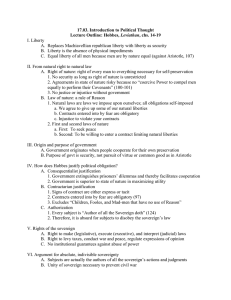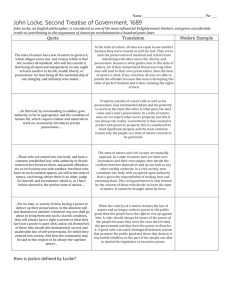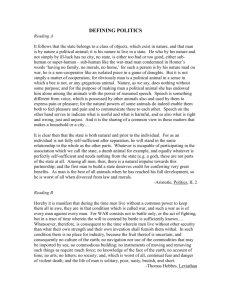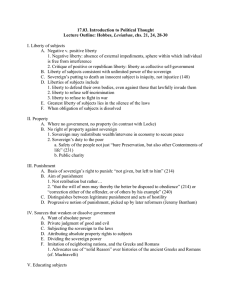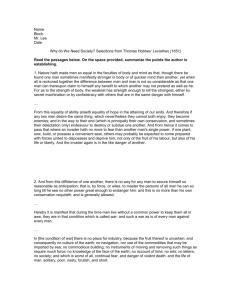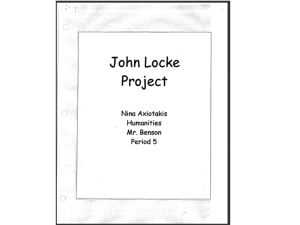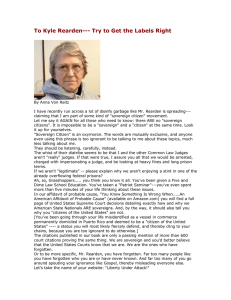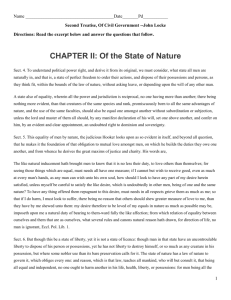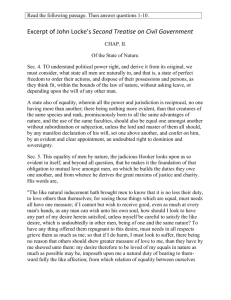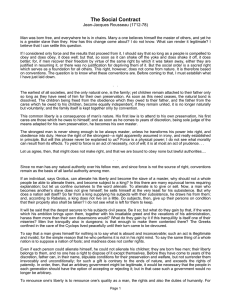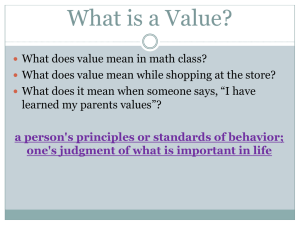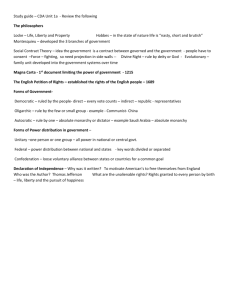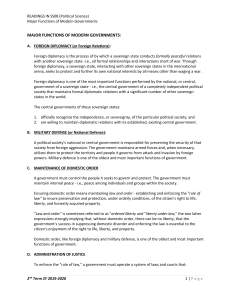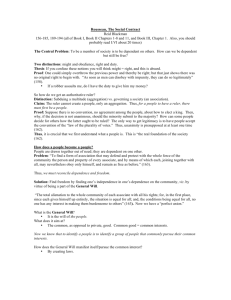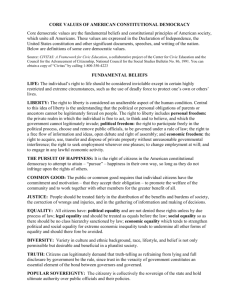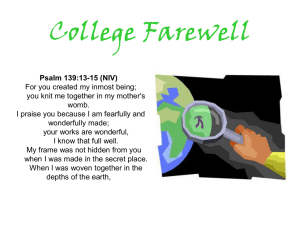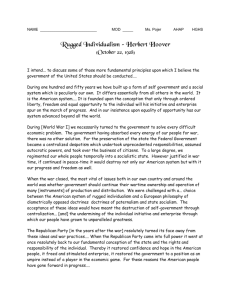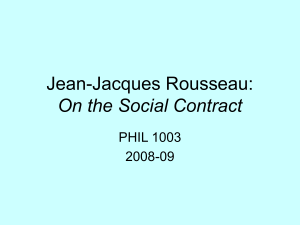The questions on this page challenge students to employ
advertisement
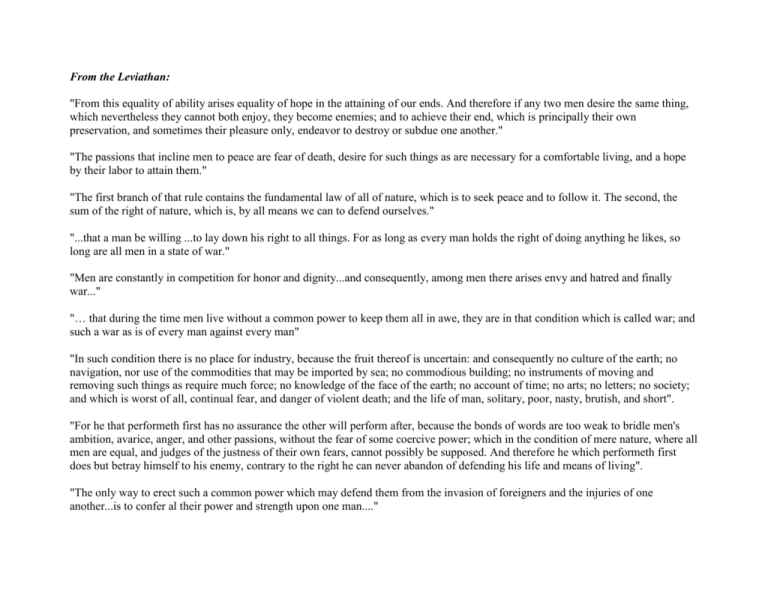
From the Leviathan: "From this equality of ability arises equality of hope in the attaining of our ends. And therefore if any two men desire the same thing, which nevertheless they cannot both enjoy, they become enemies; and to achieve their end, which is principally their own preservation, and sometimes their pleasure only, endeavor to destroy or subdue one another." "The passions that incline men to peace are fear of death, desire for such things as are necessary for a comfortable living, and a hope by their labor to attain them." "The first branch of that rule contains the fundamental law of all of nature, which is to seek peace and to follow it. The second, the sum of the right of nature, which is, by all means we can to defend ourselves." "...that a man be willing ...to lay down his right to all things. For as long as every man holds the right of doing anything he likes, so long are all men in a state of war." "Men are constantly in competition for honor and dignity...and consequently, among men there arises envy and hatred and finally war..." "… that during the time men live without a common power to keep them all in awe, they are in that condition which is called war; and such a war as is of every man against every man" "In such condition there is no place for industry, because the fruit thereof is uncertain: and consequently no culture of the earth; no navigation, nor use of the commodities that may be imported by sea; no commodious building; no instruments of moving and removing such things as require much force; no knowledge of the face of the earth; no account of time; no arts; no letters; no society; and which is worst of all, continual fear, and danger of violent death; and the life of man, solitary, poor, nasty, brutish, and short". "For he that performeth first has no assurance the other will perform after, because the bonds of words are too weak to bridle men's ambition, avarice, anger, and other passions, without the fear of some coercive power; which in the condition of mere nature, where all men are equal, and judges of the justness of their own fears, cannot possibly be supposed. And therefore he which performeth first does but betray himself to his enemy, contrary to the right he can never abandon of defending his life and means of living". "The only way to erect such a common power which may defend them from the invasion of foreigners and the injuries of one another...is to confer al their power and strength upon one man...." "The function of a sovereign...consists in the purpose for which he was entrusted with the sovereign power, namely the securing of the safety of the people; to which he is obliged by the law of nature, and to render an account thereof to God, the author of that law, and to none but him." From Locke's Second Treatise on Government: "...we must consider what state men are naturally in: a state of perfect freedom to order their actions and dispose of their possessions and persons as they think fit, within the bounds of the law of nature....A state also of equality, wherein all the power and jurisdiction is mutual, no one having more than another....but though this be a state of liberty, yet it is not a state of license...the state of nature has a law of nature which obliges everyone; and reason, which is that law, teaches all mankind who will but consult it that, being equal and independent, no one ought to harm another in his life, health, liberty, or possessions." "Men being by nature all free, equal, and independent, no one can be put out of this condition and subjected to the power of another without his own consent." “The reason why men enter into society is the preservation of their property.” “Wherever Law ends, Tyranny begins.” "...these laws ought to be designed for no other reason than for the good of the people." Man in nature Hobbes Locke Society in a Process as state of nature communities form War: All v. All Every Man for himself Competition creates conflict Life is nasty, poor brutish, and short “Life sucks and then you die” Constant state of war No culture can flourish Social Contract Trade/yield individual liberty for security Assign rights for security and safety Rational, social, generally peaceful General harmony but inequality exists Social Contract Trade individual liberty for guarantee of rights Role/purpose of Government All Powerful National security and law and order are paramount Preservation of state is absolutely critical Sovereign is responsibly only to God Limited to a policing role Gov’t guarantees Life, Liberty, and Property Sovereign is responsible directly to the citizens Citizens have RIGHT to rebel
